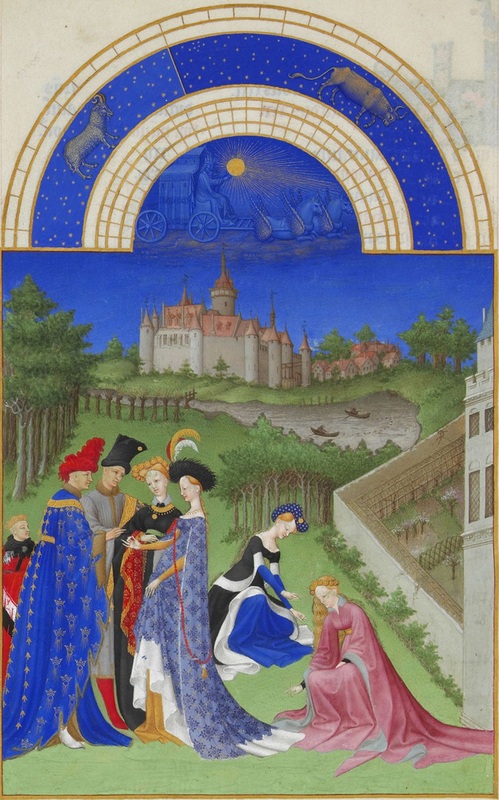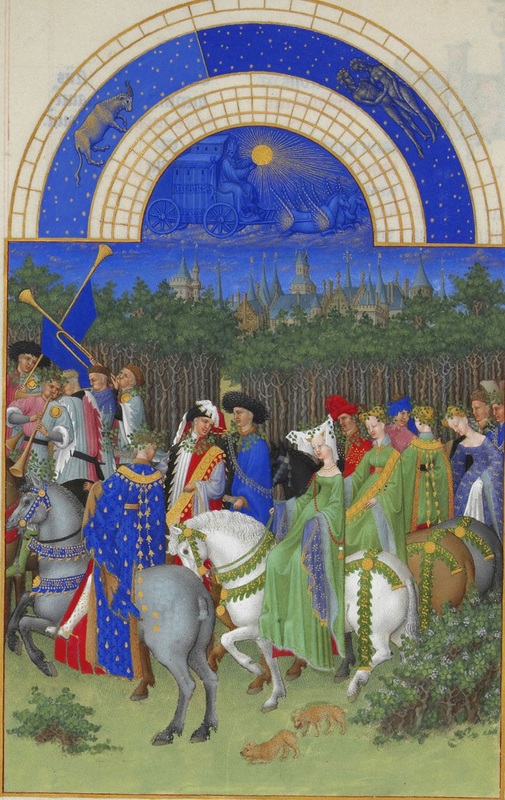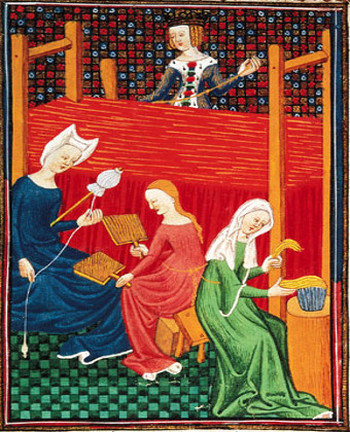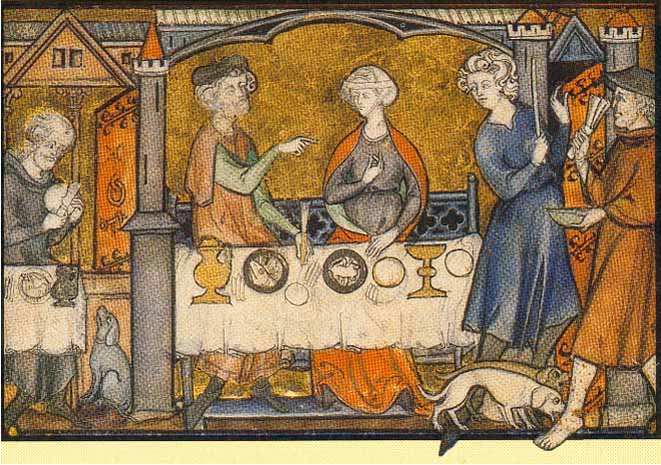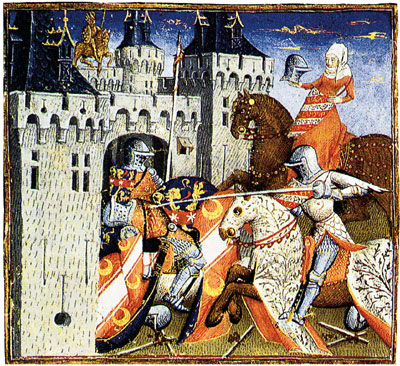The Nobles
In terms of the feudal system social hierarchy, the nobles or barons were the second wealthiest and the most powerful after the king in the chain. The nobles were awarded or leased land, called fiefs or fiefdoms, from the king whom they swore their loyalty to. Those who received the fiefs were called the king's vassals. The king was the vassal's lord. The vassals served him by providing him with armies and knights for protection. The lords owed homage and fealty to the king. They were
obligated to supply a certain number of knights for the king. The number of knights a vassal owed his king usually depended on the size of the fief. The holder of a great fief might owe the king the service of dozens or even hundreds of knights. This level of vassalage was called lords, nobles, tenants-in-chief, or barons.
Within their own fiefdoms, lords were the absolute authority. They established and administered their own legal systems, gathered taxes, designed their own currency and managed how crops were grown. The rights of the fief and the titles of the land were passed down from generation to the next, usually to the male line. If a lord had no successor, the land would be given to the church as a sign of piety. The nobles were very powerful because they controlled the armies. In fact, nobles often warred amongst themselves over territories.
|
The governance of a fief was quite time consuming. For a lord to do any of the framework himself was considered to be beneath his level—he was considered more of manager. His wife was also like a “manager” of the manor. She was expected to make sure the daily operations, such as managing the servants and handling the financial accounts, ran smoothly. Despite these responsibilities of the lord’s wife, women during this time had few rights and were expected to follow their husbands and fathers on all things. |
The daily life of a lord consisted of attending meetings in relation to his land. The lord was expected to exercise his judicial powers over the people of the land; they would hear reports on crops, harvests, supplies, and finances, such as taxes and rent. The lord would handle disputes among tenants. Whether a subject could marry or whom they could marry was also decided by the lord. Unlike the workers under them, lords had the leisure to revel in numerous activities. As the Medieval period progressed, the culture changed becoming more refined and elegant. Time was spent on the arts like poetry and music.
|
Sometimes, even the fiefs granted by the king were too large to govern by the lords. The lords, or barons, had to further divide up their land and these were 'given' to trusted knights who had also fought well in battle. He was given a piece of land to govern and he had to swear an oath to the baron, similar to how the baron swore an oath to the king, collect taxes when told to do so and provide soldiers from his land when they were needed. It is argued that sworn oath is really to the king and not the baron. |
